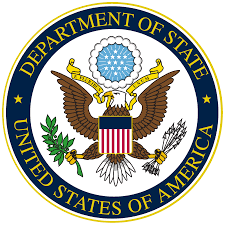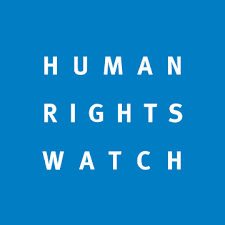Human Rights Watch: Syria Repatriations Lag for Foreigners with Alleged ISIS Ties. More than 42,400 Adults and Children Held in Life-Threatening Conditions
From Human Rights Watch
More than 42,400 foreigners accused of Islamic State (ISIS) links remain abandoned by their countries in camps and prisons in northeast Syria despite increased repatriations of women and children in recent months, Human Rights Watch said today. Kurdish-led authorities are holding the detainees, most of them children, along with 23,200 Syrians in life-threatening conditions.Recent Turkish air and artillery strikes have compounded the danger. But even before Turkey’s attacks, at least 42 people had been killed during 2022 in al-Hol, the largest camp, some by ISIS loyalists. Hundreds of others were killed in an attempted ISIS prison break in January. Children have drowned in sewage pits, died in tent fires, and been run over by water trucks, and hundreds have died from treatable illnesses, staff, aid workers, and detainees said.“Turkey’s attacks highlight the urgent need for all governments to help end the unlawful detention of their nationals in northeast Syria, allowing all to come home and prosecuting adults as warranted,” said Letta Tayler, associate crisis and conflict director at Human Rights Watch. “For every person brought home, about seven remain in unconscionable conditions, and most are children.”Turkish air strikes since November 20 targeting the Syrian Democratic Forces (SDF), the region’s armed force, struck perilously close to al-Hol camp and Cherkin prison, which together hold thousands of the detainees. The strikes, which reportedly killed eight guards, temporarily cut off power, stopped water, fuel, and bread deliveries, and reduced already limited medical and other services in al-Hol and Roj, a smaller detention camp, detainees, relatives, and aid and family groups told Human Rights Watch.During a trip to northeast Syria in May 2022 and subsequent calls and text messages, Human Rights Watch interviewed 63 foreign ISIS suspects and family members in camps, prisons, and other detention centers. Human Rights Watch also spoke with 44 camp and detention center administrators and staff, aid workers, foreign government officials, and relatives in detainees’ countries of origin.Medical care, clean water, shelter, and education and recreation for children were grossly inadequate, Human Rights Watch found. Mothers said they hid their children in their tents to protect them from sexual predators, camp guards, and ISIS recruiters and killers.In Roj, six women said guards had transferred them to detention centers for weeks or months, in some cases physically abusing them and leaving their children to fend for themselves. Boys and their mothers said guards had forcibly disappeared adolescent boys from the camps and placed them in detention centers, where they lost contact with relatives for months or years.In al-Hol, an Iraqi man said that ISIS loyalists killed several of his close relatives in the camp in 2022, calling them “spies.” Then, he said, “they left me a [written] message with a knife struck through it: ‘Allahu Akbar [God is greatest], the Islamic State remains. Your slaughter is near.’”In Roj, a woman said guards held her for days in early 2022 in a toilet stall where they interrogated her and subjected her to electric shocks, accusing her of involvement in a camp protest. “I kept telling them I wasn’t involved, but they kept torturing me,” she said.In Alaya prison, a wounded French teen whom guards snatched from his family and placed in a crowded cell for 23 hours a day pleaded for care for his disabled arm but said that most of all, “I just want to see my mother.”The foreigners come from about 60 countries. Most were rounded up by the SDF, a Kurdish-led, US-backed regional armed force, when it routed ISIS from its last physical holdout in Syria in early 2019.None of the foreigners have been brought before a judicial authority in northeast Syria to determine the necessity and legality of their detention, making their captivity arbitrary and unlawful. Detention based solely on family ties amounts to collective punishment, a war crime.The foreigners are held in northeast Syria with the tacit or explicit consent of their countries of nationality. Some countries, such as the United Kingdom and Denmark, have revoked the citizenship of many or some of their nationals, leaving several stateless in violation of their right to a nationality.Governments that knowingly and significantly contribute to this abusive confinement may be complicit in the foreigners’ unlawful detention, Human Rights Watch said. Unlawful detention committed as part of a widespread or systematic “attack directed against any civilian population,” meaning a state or organizational policy to detain people unlawfully, can amount to a crime against humanity.Since 2019, at least 34 countries have repatriated or allowed home more than 6,000 foreigners, including nearly 4,000 to neighboring Iraq, according to figures from the Administration of North and East Syria, the region’s governing body, and other contacts. Repatriations increased in 2022 with more than 3,100 foreigners taken home as of December 12, the Autonomous Administration said. Since October, at least eight countries have brought nationals home: 659 to Iraq, 17 to Australia, 4 to Canada, 58 to France, 12 to Germany, 40 to the Netherlands, 38 to Russia, and 2 to the UK. In November, Spain said it would repatriate at least 16 nationals by year’s end. Most countries have brought back few, if any, men. Many repatriated children are successfully reintegrating in their home countries, Human Rights Watch found.In a written response to Human Rights Watch requests for comment on the detainees’ treatment, the Autonomous Administration said it was trying its best to uphold human rights law. “This does not mean that there are no mistakes here and there on the level of individuals or some small groups within the military forces,” it added. The Autonomous Administration “takes into account” any reports of detainee abuse, it said.The Autonomous Administration has repeatedly urged governments to repatriate their nationals and in the meantime to increase aid to ensure the detainees’ humane treatment. They have also called on governments to help regional authorities prosecute foreign ISIS suspects. “It is very difficult for us to carry this burden on our own,” Abdulkarim Omar, the administration’s European envoy and former foreign relations co-chair, told Human Rights Watch.The United States and the UK, members of the Global Coalition Against ISIS, have spent millions of dollars on prisons to hold the detainees in northeast Syria. But foreign governments have not taken steps to provide the detainees with judicial review.“While better conditions are essential, indefinite detention without judicial review is unlawful even in the best of prisons,” Tayler said. “Countries risk complicity in this abuse if they enable detentions that violate basic rights or that create direct or indirect obstacles to their nationals’ returns.”
US Department of State: Turkey’s Conviction & Sentencing of Istanbul Mayor Ekrem Imamoglu

Ned Price, Department Spokesperson
The United States is deeply troubled and disappointed by a Turkish court’s verdict against Istanbul Mayor Ekrem Imamoglu, sentencing him to two years and seven months in prison and banning him from political activity. His conviction is inconsistent with respect for human rights, fundamental freedoms, and the rule of law. We remain gravely concerned by the continued judicial harassment of civil society, media, political and business leaders in Turkey, including through prolonged pretrial detention, overly broad claims of support for terrorism, and criminal insult cases.
The people of Turkey deserve the ability to exercise their human rights and fundamental freedoms without fear of retribution. The right to exercise the freedoms of expression, peaceful assembly, and association is enshrined in Turkey’s constitution, its international law obligations, and its OSCE commitments. We urge the government to cease prosecutions under criminal “insult” laws, and to respect the rights and freedoms of all Turkish citizens, including by ensuring an open environment for public debate.








Comments